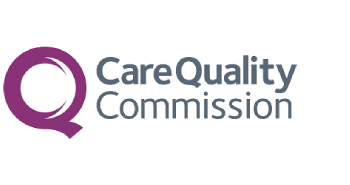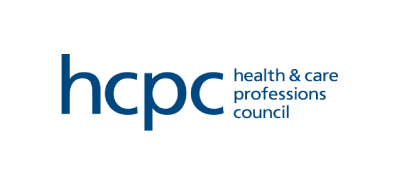You might have heard about ADHD in children, but did you know that many adults live with undiagnosed ADHD? It’s surprisingly common. People often go through their lives thinking that their difficulties with focus, time management and emotional regulation are just personality traits or signs of stress. However, it is sometimes the case that these challenges point towards something more significant.
If you find yourself constantly feeling overwhelmed, stuck in a pattern of procrastination or find it different to stay organised no matter how hard you try, ADHD could be a factor. By understanding the signs of undiagnosed ADHD, it can help you to gain clarity.
In this article, we will break down exactly what it looks like and how it can impact your life.
Symptoms of Undiagnosed ADHD in Adults
Symptoms of undiagnosed ADHD in adults can be grouped into three main areas: inattention, hyperactivity and impulsivity. However, an adult with ADHD may not necessarily experience all three.
In real life, this can look like:
1. Inattention
This is one of the most well known features of ADHD. Adults with undiagnosed ADHD often describe themselves as easily distracted or forgetful. Common signs include:
- Struggling to focus on tasks, especially tasks that are boring or repetitive.
- Frequently losing track of time, resulting in missing deadlines and appointments.
- Forgetting important details, like birthdays or commitments.
- Zoning out during conversations or meetings.
- Having difficulty following through on tasks, especially those requiring multiple steps.
Sound familiar? Many adults blame these tendencies on a hectic lifestyle, but for those with ADHD, these patterns persist regardless of external circumstances.
2. Hyperactivity (or Restlessness)
In children, hyperactivity can often be more obvious as it manifests itself as physical movement like fidgeting or running around. However, in adults, it can present itself more subtly:
In children, hyperactivity often manifests as physical movement, like fidgeting or running
- Feeling constantly restless or on edge.
- Talking excessively or interrupting others.
- Struggling to relax or sit still, even during leisure activities.
- Juggling multiple tasks but rarely completing any.
Some adults channel this restlessness into being highly active or productive. However, they may burn out quickly or feel exhausted by their constant mental activity.
3. Impulsivity
Impulsivity can lead to risky or reckless decisions. Adults with undiagnosed ADHD may exhibit impulsive behaviours without fully realising the consequences:
- Interrupting others in conversations or blurting out thoughts.
- Making snap decisions, like quitting jobs or making large purchases without planning.
- Struggling with emotional outbursts or frustration.
- Difficulty waiting their turn in queues or during discussions.
These behaviours can strain relationships and create professional challenges if left unaddressed.
How Undiagnosed ADHD Affects Daily Life
Living with undiagnosed ADHD often feels like being stuck in a cycle of frustration and self-blame. Many adults with ADHD report feeling like they’re constantly underachieving or that something is wrong with them. Here are key areas where ADHD can have an impact:
1. Work and Career
Adults with ADHD might struggle in structured environments that demand sustained focus and organisation. Common challenges include:
- Difficulty meeting deadlines.
- Frequent job changes due to frustration or boredom.
- Poor time management leading to last-minute work.
However, ADHD can also bring strengths, such as creativity, problem-solving skills, and the ability to hyperfocus on tasks of interest. With proper support, adults with ADHD can thrive in careers that match their strengths.
2. Relationships
ADHD can create misunderstandings in relationships. Partners and friends may misinterpret symptoms as laziness, irresponsibility, or lack of care. Issues such as forgetfulness or impulsive remarks can lead to conflict if the underlying cause isn’t understood.
Communication and support are key. Understanding how ADHD influences behaviour can help build stronger, more empathetic relationships.
3. Mental Health
Many adults with undiagnosed ADHD experience co-occurring conditions such as:
- Anxiety disorders.
- Depression.
- Low self-esteem due to years of perceived failures or underperformance.
When ADHD goes unrecognised, these conditions can worsen over time. Addressing the root cause through diagnosis and treatment can significantly improve mental well-being.
Barriers to Diagnosis in Adults
Why do so many adults go undiagnosed? Several factors play a role:
Lack of Awareness
Many adults don’t associate their difficulties with ADHD because they view it as a childhood condition. In reality, ADHD often persists into adulthood, though symptoms can change over time.
Stigma
There’s still a lingering stigma around mental health and neurodevelopmental disorders. Some adults may hesitate to seek help due to fear of being judged or labelled.
Misdiagnosis
ADHD symptoms can overlap with other conditions. For example, chronic stress, anxiety, and depression can present similar challenges, leading to misdiagnosis or overlooked ADHD.
Seeking a professional assessment from experts like those at KPI:Access is crucial for getting an accurate diagnosis.
Diagnosis and Treatment Options
The Assessment Process
If you suspect you have ADHD, a professional assessment can provide clarity. At KPI:Access, our neurodevelopmental specialists, each with extensive experience in assessing and treating neurodevelopmental disorders. The process typically includes:
- A detailed evaluation of your personal and medical history.
- An assessment of current symptoms and how they impact your daily life.
- Input from close family or friends (if relevant).
You don’t need a GP referral to book an assessment with KPI:Access, and we aim to provide fast, accessible service so you can get the support you need without long waiting times.
Treatment Options
Treatment for ADHD often involves a combination of approaches, including:
- Medication: Stimulant and non-stimulant medications can help improve focus and reduce impulsivity.
- Therapy: Cognitive Behavioural Therapy (CBT) can help develop strategies for time management, organisation, and emotional regulation.
- Lifestyle Changes: Exercise, proper sleep, and mindfulness practices can also support symptom management.
Support Networks and Resources
If you’re navigating life with ADHD, connecting with support networks and resources can be invaluable. Here are a few reliable organisations to explore:
- NHS ADHD Services: The NHS provides information and guidance on ADHD symptoms, diagnosis, and treatment options. Visit their ADHD support page for more details.
- ADHD Foundation: A UK-based charity that offers resources, webinars, and events to help people with ADHD and their families. You can learn more on their website at ADHD Foundation.
These organisations provide a wealth of information and can connect you with local support services.
FAQs About ADHD in Women
KPI:Access – How We Can Help
At KPI:Access, we specialise in providing accessible and affordable assessments for ADHD and ASD. Our goal is to reduce waiting times and offer high-quality, professional support to both children and adults.
Our team takes a compassionate and thorough approach to assessment. We understand that seeking a diagnosis can feel overwhelming, which is why we’re committed to providing a stress-free, supportive experience.
Why Choose KPI:Access?
- Fast appointments: No need to wait months for an assessment.
- No GP referral needed: Self-referrals are welcome.
- Expert care: Our clinicians are highly trained in ADHD and ASD diagnosis.
- Inclusive approach: We operate a no-exclusion policy, ensuring everyone receives the support they need.
Taking the step to get assessed could change your life. A diagnosis can unlock access to strategies and treatments that improve your quality of life, helping you reach your full potential.





